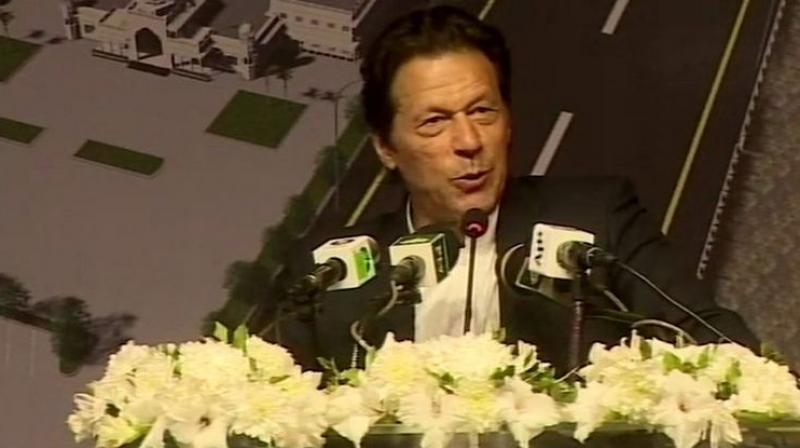Imran needs to show resolve on terrorism

It is a favourable sign that Pakistan Prime Minister Imran Khan has accepted with equanimity India’s stance of not responding favourably to his invitation to establish normal relations made from the Kartarpur Gurdwara complex earlier this week. But for this to have a constructive meaning and an authentic ring, the Pakistani leader should endeavour to take some meaningful steps to curb anti-India terrorism from his country’s soil and adopt a firm posture in dealing with Lashkar-e-Tayyaba chief Hafiz Saeed for his organisation’s culpability in the 2008 Mumbai attacks. It is a copout to say that he can’t be held responsible for the despicable 26/11 terrorist assault. No one can hold him personally guilty. But he must find the resources to take charge of the situation as his country’s elected leader even if his election was facilitated in no small measure by the Pakistan Army, which did what it could to discomfit his opponents at election time. Mr Khan said at the Kartarpur ground-breaking ceremony that Kashmir was the only issue between India and Pakistan. To India, this seems a mischievous misreading of the situation and an attempt to block out India’s fundamental concern of terrorism emanating from Pakistan. To say, as Mr Khan has said, that his country does not gain from terrorism is of little concern to India. If under his leadership he can take effective steps to stamp out terrorism, that would help his country as well as India, besides eliminating the heat from the rest of the world which has at last begun to ask tough questions of Pakistan on this matter. That, in fact, is the nub of the American government’s new South Asia Policy articulated last year.
In fact, Pakistan’s all-weather friend China has also started to express its concerns on the question of terrorism from time to time, though Beijing may not be entirely displeased so long as the terrorists direct their energies mainly against India.
In the specific case of the 26/11 accused, if Pakistan’s tutored judicial system has given relief to Hafiz Saeed and others, it is up to the Pakistan government to file fresh cases under the relevant provisions and marshal the evidence it has in a cogent fashion. To Indians, it appears that extremists and terrorists are getting an easy ride on account of their powerful links with the security establishment. It is true, as Mr Khan says, that the people of our two countries desire a friendly and cooperative relationship. Indeed, we have everything in common except the military’s quasi-dictatorship.
And we have a common culture, above all, and a common emotional makeup. If the leadership in Pakistan wishes to harness this, it must take the needed steps, which are well known and well understood. A positive Indian response will then be guaranteed.

